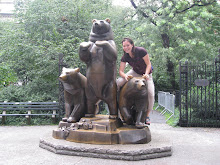So for those of you who read the previous posts and had a vague idea of my project, forget that entirely. I am shifting in a new direction and will be studying the various platforms that anonymous people use and, more specifically, how groups like Anonymous manipulate the biases and loopholes in media like Twitter, Digg, etc. to make their videos/ideas viral and extremely widespread and publicized. This will involve understanding how the media themselves work; learning about the code and what inherent sensory biases the platforms hold. I will not need an extremely thorough understanding of the code itself, because Anonymous and anonymous users don't actually write the code; they exploit the weaknesses and strengths of each pre-fabricated communication system (context) to maximize the strength of their particular message. My goal is to understand what they understand and then to explain how/why they do it. *nod*
So far, the readings that we have used will actually be very helpful to me. The readings on media ecology and media biases will be very helpful to me. I am going to be re-reading my notes on those articles (see older posts), as well as researching more into both media ecology, communication theory, code, and context (linguistic anthropological papers and communication systems research should be coming in handy).
(Un)fortunately, since I had already begun researching for my previous topic, I now have a fairly decent grounding in the gradual evolution of the 'mediated self'. I have finished the first half of No Sense of Place by Meyrowitz (see below post) as well as the complete Mediated by de Zengotita. The essence of Mediated was a continuation of Meyrowitz' book, but much more contemporary. His basic argument was that "you are completely free to choose because it doesn't matter what you choose. That's why you are so free. Because it doesn't matter."
De Zengotita's book is an argument that we have become so comfortable with dealing with reality through something else that essentially everything is a performance and there are infinite OPTIONS available at all times (and reality's opposite=options). Where my new focus comes into play is in his statement: "what counts is the code - digital or DNA, both are susceptible (and subject) to mediation, to human control of what it expresses". That is my new project in a nutshell. Looking at how Anonymous, etc. look at all of the codes for the media on the internet and manipulate them to CONTROL what is expressed, what is advertised, what becomes viral.
So why do we study this? De Zengotita quotes Bezos as saying, "the physical world is a wonderful medium, and it's not going to go away." The 'real' world has become another type of media and, for many, control of the internet communication media can control enormous parts of culture. Look at memes, at pop culture, the meaning of 'cool', and myriad other culture-shaping tidbits. The internet pervades our lives and the ability to manipulate the media of the internet gives enormous power and sway to the ones who hold the ability (e.g. Anonymous - why else would Fox News, etc. cover them??).
Now, I get to outline a further plan of research - I hope to research more about the history of media ecology, the effects new media have had on culture (see McLuhan, Meyrowitz, etc.), and then try to find whatever I can on current media phenomena like Twitter, Digg, Diigo, etc. I watched part of an interview with the founder of Twitter on C-SPAN the other night, and it was obvious to me that not even he truly knows of the future of his company and of his code. It's all new, and it's all different. As De Zengotita said, "this whole technology thing has just started, but it's accelerating at a tremendous rate."
I could not agree more. We are on the tip of the iceberg. As Dr. Wesch mentioned in his Web 2.0 video, we have to reconsider a LOT of things. We no longer think purely linearly if we are trying to be rational. The electronic age is here and it has opened up new doorways for expressing thought, communication, and community. How do the media that have begun to develop shape these new ideas, how are they forming, how are they evolving, and how are people using them?
Tim Finan et al. wrote an article entitled "The information ecology of social media and online communities" which was published this past fall in AI Magazine. He and his cohorts specifically looked at blogging, which is not truly what I am interested in, but he did have a great poing: "As the web continues to evolve, we expect that the ways people interact with it, as content consumers as well as content providers, will also change. The result, however, will continue to represent an interesting and extravagant mixture of underlying networks--networks of individuals, groups, documents, opinions, beliefs, advertisements, and scams. These interwoven networks present new opportunities and challenges for extracting information and knowledge from them."
http://find.galegroup.com.er.lib.k-state.edu/itx/retrieve.do?contentSet=IAC-Documents&resultListType=RESULT_LIST&qrySerId=Locale(en%2C%2C)%3AFQE%3D(KE%2CNone%2C13)media+ecology%24&sgHitCountType=None&inPS=true&sort=DateDescend&searchType=BasicSearchForm&tabID=T002&prodId=EAIM&searchId=R1¤tPosition=1&userGroupName=ksu&docId=A186225627&docType=IAC
Lance Strate wrote a short review of McLuhan's work http://find.galegroup.com.er.lib.k-state.edu/itx/retrieve.do?contentSet=IAC-Documents&resultListType=RESULT_LIST&qrySerId=Locale(en%2C%2C)%3AFQE%3D(KE%2CNone%2C13)media+ecology%24&sgHitCountType=None&inPS=true&sort=DateDescend&searchType=BasicSearchForm&tabID=T002&prodId=EAIM&searchId=R1¤tPosition=16&userGroupName=ksu&docId=A130975645&docType=IAC
He wrote: "And it is here that McLuhan introduces his famous aphorism, which is generally considered axial in media ecology: "the medium is the message" (pp. 17 ff.). Simply put, it is the idea that the media or technologies that we use play a leading role in how and what we communicate, how we think, feel, and use our senses, and in our social organization, way of life, and world view."
So, books to read/finish and authors to peruse:
Marshall McLuhan
Innis
Meyrowitz
Michael Silverstein
Debra Spitulnik
De Zengotita
Lawrence Lessig (specifically "Code")
etc.
And watch the full C-SPAN interview with Twitter founder...
Any further suggestions, comments, help would (as always) be appreciated... Good Night!!!!
Subscribe to:
Post Comments (Atom)

No comments:
Post a Comment